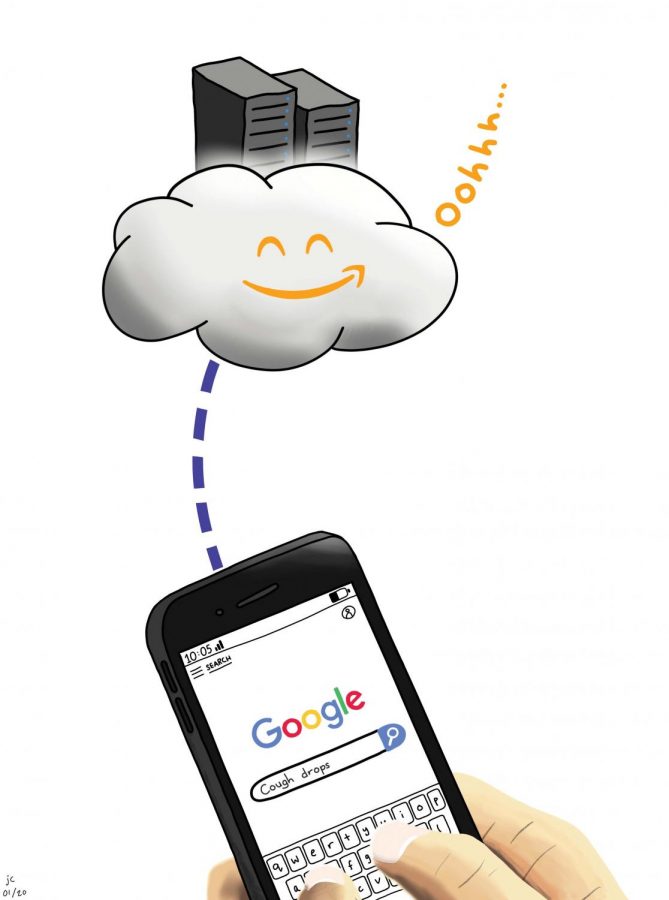Let’s Retake Control of Our Data
How many times have you opened your computer or phone to a website that presents you with an ad about something you were just talking or texting about? I started noticing it around a year ago, with ads, YouTube recommendations – even my Instagram feed – being oddly tailored to my interests. Just this past week, I opened Instagram to find an ad for Halls cough drops, and I considered this particularly odd because, one, I had never gotten an ad for cough drops before, and two, I was sick. So how did my phone know?
Data is a billion-dollar market, which means that the “free” search engines or websites you use are actually using you by selling your data to advertisers. Your every click and query fuels this billion-dollar market.
Warning, bad news ahead for Android users: according to a study conducted by Carnegie Mellon University, your Android smartphone could be tracking you every three minutes, and according to a study by Vanderbilt University, Androids (the phone itself along with Google’s pre-installed apps) collect ten times more data than iOS. That doesn’t mean iOS doesn’t collect data; it definitely does, and sells it too.
According to Domo Inc, a cloud software company, the amount of data created is astounding: “Over 2.5 quintillion bytes of data are created every single day.” In 2018, American companies alone spent $19 billion dollars analyzing and acquiring personal data. Why is our data so important to them that they would spend billions?
Cambridge Analytica was a British political consulting firm involved in a massive data breach in 2018. It sold the profiles of American voters to political campaigns and did so, in part, by obtaining the data of 87 million Facebook users. This personal data was and still is used to influence social media users’ opinion of political candidates with ads and surveys. In political campaigns, this subtle influence can translate into a huge advantage. Cambridge Analytica supported the Trump campaign’s digital outreach and was even linked to the leaking of Secretary Clinton’s emails. Many think that Cambridge Analytica helped Trump win the 2016 presidential campaign by taking advantage of our data’s vulnerability.
This case forever changed how millions of Americans viewed personal and consumer data by showing just how insecure our “private” data is. We exchange our data constantly, often without knowing it, in order to be able to use websites, search engines, and the Internet for free. It’s inevitable, if you don’t want to be living under a rock. However, individuals should have control over their own personal data, and be able to choose how it is shared and used. I don’t just mean by quickly scanning over a “Terms and Conditions” agreement, which is intentionally difficult to comprehend. Scandals such as Cambridge Analytica have shed light on the fact that Internet use comes with a price.
There are ways we could protect our data better. Legislation such as California’s Consumer Privacy Act of 2018 requires companies in California to let users know what data is being sold and to whom. Currently, each state writes its own legislation regarding privacy, and many states lack sufficient legislation.
I believe that there needs to be a broader federal legislation to protect data. We also desperately need a national data protection agency that advocates not for the rights of the companies but for consumers and can adequately fine companies that violate the law, as does Europe’s General Data Protection Regulation.






